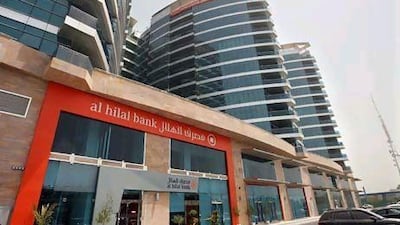Al Hilal Bank is preparing for its first foray into credit markets, courting international investors with an Islamic bond sale.
The Islamic bank, which is fully owned by the Abu Dhabi Investment Council, seeks to issue at least US$1 billion (Dh3.67bn) of sukuk before the end of the year.
Al Hilal is hoping the bond issue will help it to build a track record among international credit markets for future bond sales, said Sarie Arar, the head of wholesale banking at Al Hilal.
"It's the first issuance for Al Hilal Bank if it happens, and when it happens … that'll set a benchmark for Al Hilal in the market," he said.
"Given the current interest rate scenario, the market could be in favour of the issuer. Given that there aren't many opportunities for good returns on an acceptable risk, Al Hilal Bank could be a potential candidate for investors," he said.
The bank is keeping the details to itself, such as where the sukuk might be listed or the total size of the sukuk programme.
The debt comes on the heels of other issuances by UAE-based lenders, including Sharjah Islamic Bank and First Gulf Bank, which tapped credit markets earlier this year.
Both attracted significant interest from investors, with the $650 million sukuk issued by First Gulf Bank more than six times oversubscribed.
Al Hilal made its first profits last year since it was founded in 2008, posting earnings of $38.1m, Reuters reported.
But the bank does not publish financial statements, which would lead most investors to look at the bank's ownership as an indicator of its credit quality, said Khalid Howladar, a financial analyst at Moody's Investors Service. "If you're not publishing audited financials, then investors aren't in a good position to understand the underlying credit risk of the bank," he said. "However, given its 100 per cent ownership by the Abu Dhabi Government, investors may look towards that as a key driver in their risk assessment."
Moody's rates Abu Dhabi "Aa2" alongside Qatar and Kuwait, its highest rating for a Middle Eastern state.
The Dubai Government's return to credit markets in June, its second issuance since Dubai World requested a standstill on its debts, has resulted in improved borrowing conditions for companies, and may also have encouraged some companies to issue sukuk for the first time, Mr Howladar said.
The emirate sold $500m of bonds in an issuance that was three times oversubscribed.

